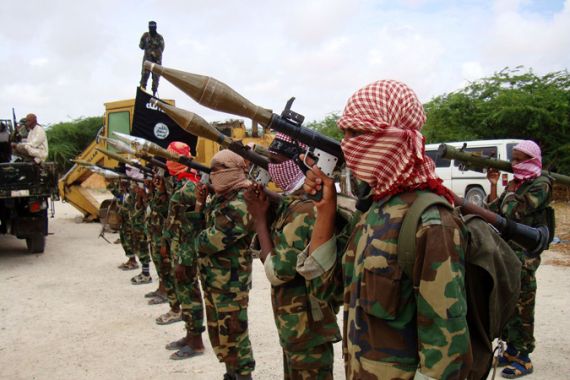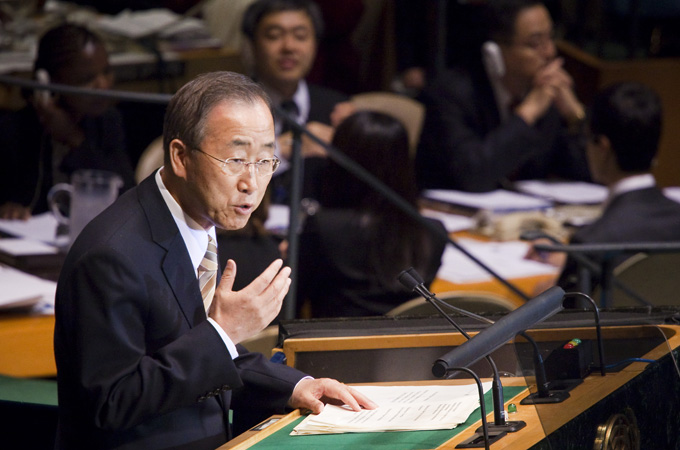AU asks UN for Somalia blockade
Air and naval restrictions would tackle piracy and prevent weapons reaching al-Shabab fighters, African Union says.

 |
| Ban Ki-moon, the UN Secretary-General, urged the council to take “bold and courageous decisions.”[GALLO/GETTY] |
The African Union (AU) has asked the United Nations Security Council to approve a no-fly zone and naval blockade of Somalia.
Ramtane Lamamra, the AU’s commissioner for peace and security, said the move would deter pirates operating off the country’s coast and prevent fighters and shipments from reaching the al-Qaeda linked al-Shabab group, and other groups fighting to topple the largely powerless UN-backed government.
He also urged the Security Council to support the boosting of its African Union Mission to Somalia (Amisom) to 20,000 troops from the current level of 7,200, mostly fom Uganda and Burundi.
“The international community can decide to pursue its current policy of limited engagement and halfhearted measures, in the false hope that the situation can be contained … the international community can also decide it should step up its efforts,” he said.
‘Glimmers of hope’
Ban Ki-moon, the UN Secretary-General, signalled his backing for increasing the resources of Amisom, saying that recent advances against al-Shabab and other such groups showed there were “glimmers of hope” in Somalia and called on the council to take “bold and courageous decisions”.
Somali government troops launched an offensive last Sunday to take back areas held by al-Shabab.
Ban said reports that the residents of a town near the Kenyan border, Belet Hawo, were taking down al-Shabab flags and replacing them with Somali national flags “are signs of the Somali people’s yearning for peace and security”.
The interim goverment controls just a few blocks of the capital, Mogadishu, and some small other areas, while armed groups, such as al-Shabab, control much of the rest of the country.
Yusuf Hassan Ibrahim, the Somali foreign minister, told the security council that the government fully supports the AU’s strategy and that it needed assistance to build up the army and police.
“We all know that there’s no better people who can defend their countries except their own people,” Ibrahim said.
“Therefore give us the means, support us in forming our police and army to really be in a situation to really confront the extremism, both the terrorism and piracy in our own country.”
‘Legitimate’ request
Following a closed-door council meeting, Ruhakana Rugunda, Uganda’s ambassador to the UN, the current council president, told reporters that the council considers the AU’s request for a blockade to be “legitimate” but the council’s members would need further details.
Yoweri Museveni, Uganda’s president, told security council representatives recently that his country is willing to provide anywhere from 12,000 to 20,000 troops if enough money is provided for the mission. Jean Ping, the AU chairman, last week appealed to the UN for fund to pay and equip them.
The US and Italy are already helping pay for training for government forces.
Johnnie Carson, the US assistant secretary of state, said on Wednesday that Washington supported an increase in the number of peacekeepers in Somalia but took no position on what that number should be.
Lamamra also sought the 15-nation council’s help in tightening international sanctions against Somalia, and in removing some of the underlying conditions that have led to a boom in piracy by doing something to tackle the illegal fishing and dumping of toxic substances and waste off the coast.
Somalia has not had a fully functioning government since 1991.